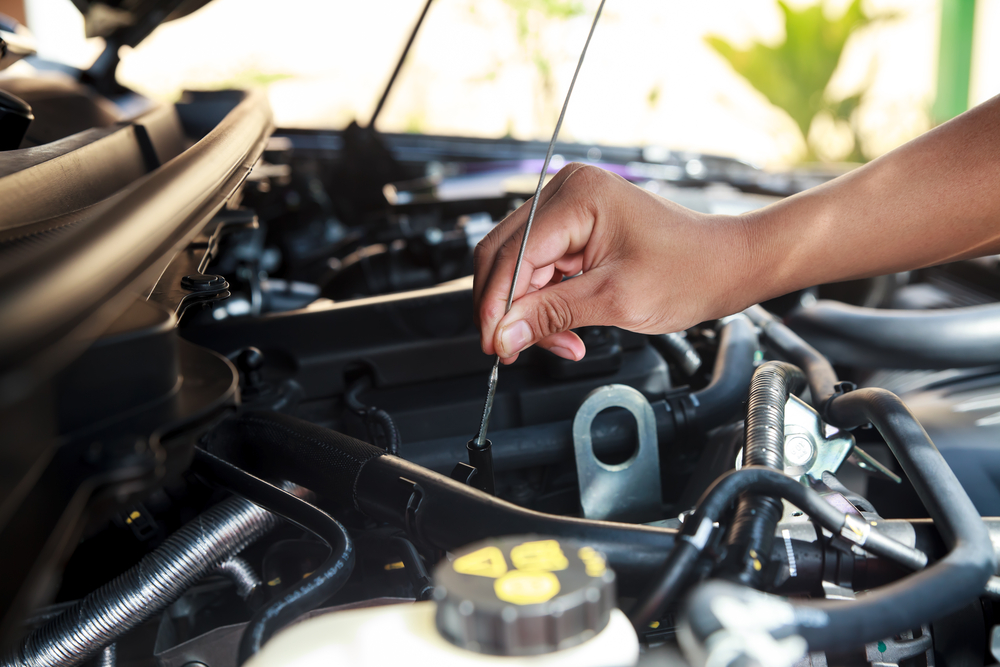All Categories
Featured
Tire turnings might not constantly be top of mind for lorry upkeep, yet they play an essential role in guaranteeing your automobile's longevity, safety and security, and efficiency. By consistently rotating your tires, you can protect against irregular wear, optimize your tires' life-span, and improve your driving experience.
What Is Tire Rotation?
Tire rotation is the process of relocating tires to different positions on your car to guarantee also use. Relying on your lorry's drivetrain-- front-wheel drive (FWD), rear-wheel drive (RWD), or four-wheel drive (AWD)-- the front and rear tires experience various levels of stress and anxiety. Consistently turning your tires helps disperse this wear evenly.
Benefits of Routine Tire Rotations
Also Tire Use
Tires on different axles experience various degrees of tension. For example, front tires on a FWD lorry deal with acceleration, stopping, and guiding, creating them to use a lot more promptly.
Revolving the tires ensures also wear, permitting all 4 tires to preserve similar step depth.
Boosted Handling and Safety
![]()
Unequal walk depth can lead to imbalances, minimized grip, and endangered handling, specifically on slippery or wet roadways.
Revolved tires make certain regular efficiency and a more secure driving experience.
Extended Tire Life Expectancy
Also put on methods your tires last longer, conserving you money on early replacements.
Much Better Gas Efficiency
![]()
Unevenly worn tires can increase moving resistance, calling for more energy from the engine and lowering fuel economic climate.
Well balanced tires minimize stress on the car and enhance performance.
Expense Savings
By prolonging the life of your tires and avoiding premature replacements, normal rotations can conserve you significant costs over time.
Advised Turning Intervals
A lot of manufacturers suggest rotating your tires every 5,000 to 7,500 miles. A great guideline is to have your tires turned throughout routine upkeep sees, such as oil changes. Constantly refer to your vehicle's owner manual for details guidelines.
Usual Tire Turning Patterns
The turning pattern depends on your vehicle's drivetrain and tire kind:
Front-Wheel Drive: Swap front tires with the back ones, crossing them diagonally.
Rear-Wheel Drive: Relocate back tires to the front axle and cross them.
All-Wheel Drive: Use an "X" pattern for balanced wear.
Directional Tires: Ensure the tires continue to be on the exact same side to maintain their made performance.
Indicators You Required a Tire Rotation
Uneven wear patterns on the tires.
Car vibrations, specifically at greater rates.
Reduced gas efficiency.
Problem keeping control in adverse problems.
Final Thoughts
Regular tire rotations are crucial for preserving your vehicle's safety and security and performance. By investing time in this simple procedure, you'll appreciate a smoother adventure, improved handling, and considerable price savings in the lengthy run. Schedule your next tire turning with a trusted company and make it a regular part of your upkeep regimen.
What Is Tire Rotation?
Tire rotation is the process of relocating tires to different positions on your car to guarantee also use. Relying on your lorry's drivetrain-- front-wheel drive (FWD), rear-wheel drive (RWD), or four-wheel drive (AWD)-- the front and rear tires experience various levels of stress and anxiety. Consistently turning your tires helps disperse this wear evenly.
Benefits of Routine Tire Rotations
Also Tire Use
Tires on different axles experience various degrees of tension. For example, front tires on a FWD lorry deal with acceleration, stopping, and guiding, creating them to use a lot more promptly.
Revolving the tires ensures also wear, permitting all 4 tires to preserve similar step depth.
Boosted Handling and Safety

Unequal walk depth can lead to imbalances, minimized grip, and endangered handling, specifically on slippery or wet roadways.
Revolved tires make certain regular efficiency and a more secure driving experience.
Extended Tire Life Expectancy
Also put on methods your tires last longer, conserving you money on early replacements.
Much Better Gas Efficiency

Unevenly worn tires can increase moving resistance, calling for more energy from the engine and lowering fuel economic climate.
Well balanced tires minimize stress on the car and enhance performance.
Expense Savings
By prolonging the life of your tires and avoiding premature replacements, normal rotations can conserve you significant costs over time.
Advised Turning Intervals
A lot of manufacturers suggest rotating your tires every 5,000 to 7,500 miles. A great guideline is to have your tires turned throughout routine upkeep sees, such as oil changes. Constantly refer to your vehicle's owner manual for details guidelines.
Usual Tire Turning Patterns
The turning pattern depends on your vehicle's drivetrain and tire kind:
Front-Wheel Drive: Swap front tires with the back ones, crossing them diagonally.
Rear-Wheel Drive: Relocate back tires to the front axle and cross them.
All-Wheel Drive: Use an "X" pattern for balanced wear.
Directional Tires: Ensure the tires continue to be on the exact same side to maintain their made performance.
Indicators You Required a Tire Rotation
Uneven wear patterns on the tires.
Car vibrations, specifically at greater rates.
Reduced gas efficiency.
Problem keeping control in adverse problems.
Final Thoughts
Regular tire rotations are crucial for preserving your vehicle's safety and security and performance. By investing time in this simple procedure, you'll appreciate a smoother adventure, improved handling, and considerable price savings in the lengthy run. Schedule your next tire turning with a trusted company and make it a regular part of your upkeep regimen.
Latest Posts
Find Budget-Friendly Auto Repairs with Montclare’s Limited-Time Service Specials
Published May 28, 25
1 min read
Find Montclare Auto Repair’s Most Popular Car Care Solutions and Why Drivers Choose Them
Published May 28, 25
1 min read
Check Out Exceptional Vehicle Maintenance Services in Chicago – Quality Service Today
Published May 26, 25
1 min read
More
Latest Posts
Find Budget-Friendly Auto Repairs with Montclare’s Limited-Time Service Specials
Published May 28, 25
1 min read
Find Montclare Auto Repair’s Most Popular Car Care Solutions and Why Drivers Choose Them
Published May 28, 25
1 min read
Check Out Exceptional Vehicle Maintenance Services in Chicago – Quality Service Today
Published May 26, 25
1 min read